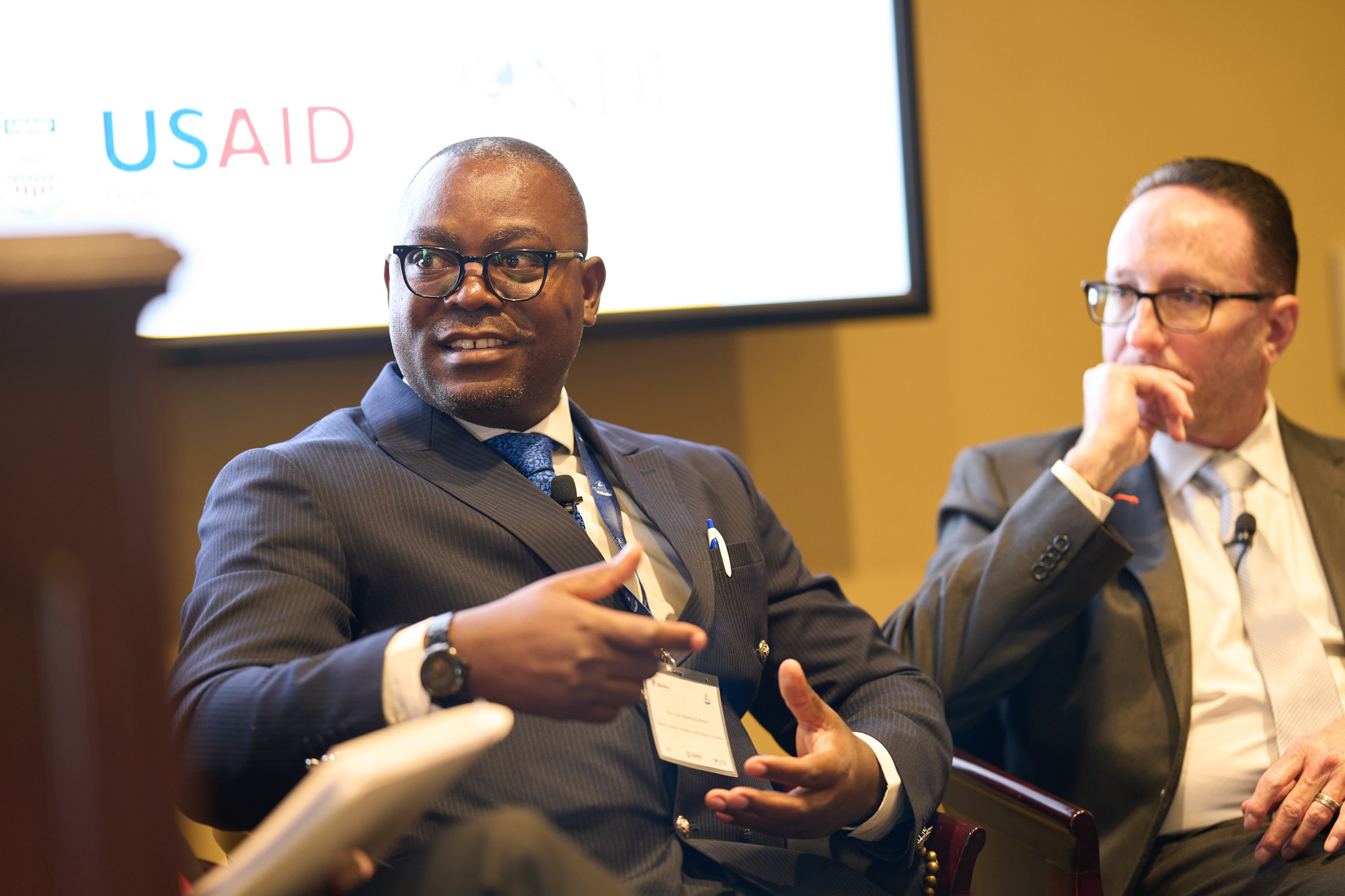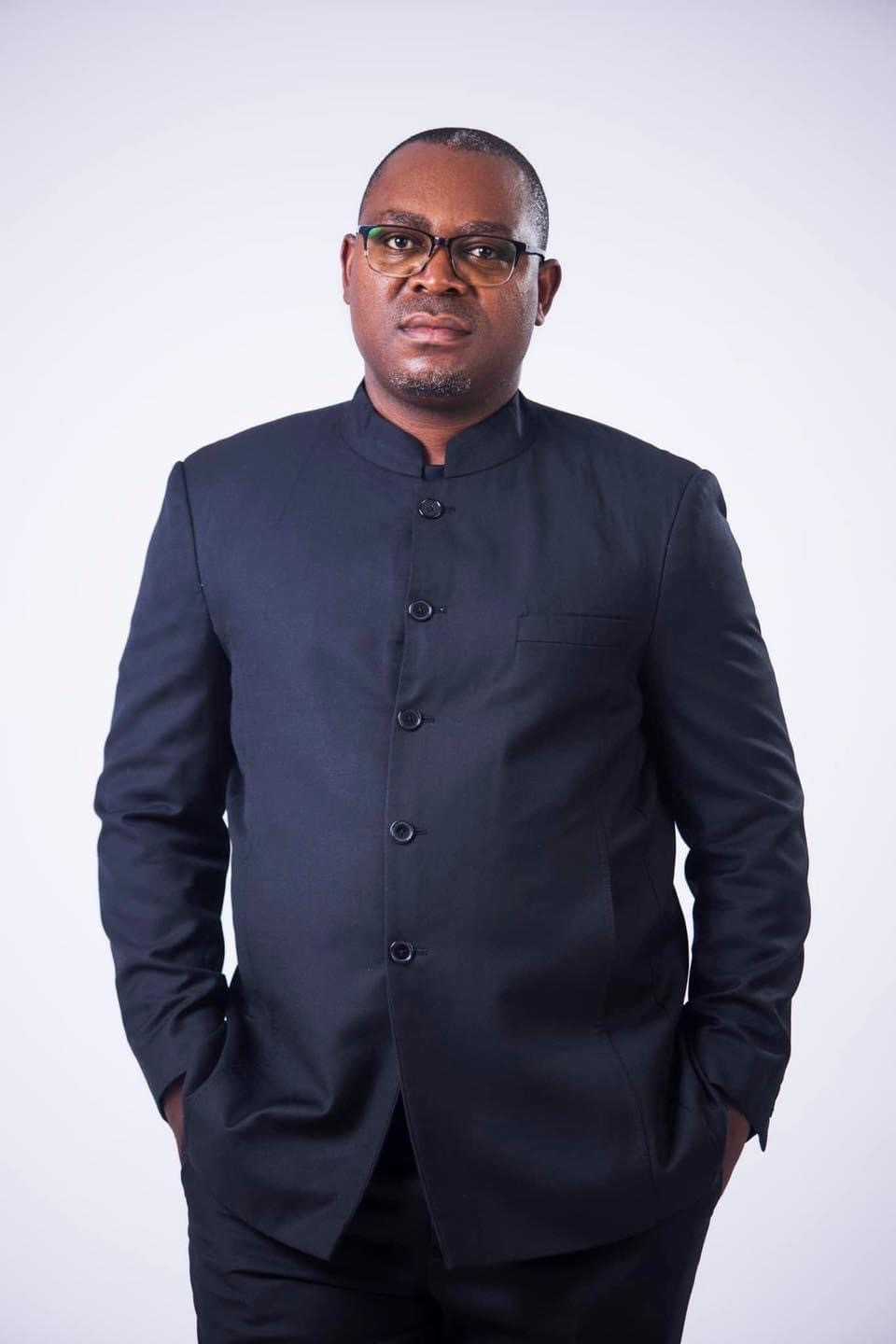
The House Democracy Partnership (HDP) is a bipartisan commission of the U.S. House of Representatives that works directly with over 20 partner parliaments around the world to support the development of effective, independent, and responsive legislatures. HDP is proudly implemented by the International Republican Institute (IRI) and the National Democratic Institute (NDI).
In this month’s alumni profile, the Honorable Mutotwe Kafwaya, a member of the Zambian National Assembly, shares his experience participating in HDP programming.

What parliament and chamber are you a member of?
I am a member of the National Assembly (parliament) of Zambia, in which I am serving a second mandate. In the Assembly, I am a chairperson for the Committee on National Economy, Trade and Labor Matters and a member of the Committee on Reforms and Modernization. The Zambian parliament operates a unicameral system.
What HDP program did you participate in?
I was privileged to participate in the Legislative Track of the Summit on Democracy in Washington DC, USA.
What do you want other people to know about your country?
Zambia is a constitutional democracy which operates a plural political system where qualifying citizens have a right to belong to political parties of their choice. Since independence, which Zambia gained from the Crown in 1964, the country has been ruled by seven presidents who have come from four different political parties.
Power transitions have been smooth ever since the return of plural politics. And this is not to say that there were problems before, as the first twenty-seven years of our history saw only one president in office. This president was among those who delivered the country from the shackles of colonialism and began a political dispensation based on a multi-party system. But with the passage of time, this was consolidated into a one-party participatory system. This system was later abolished after twenty-seven years of rule by the late Dr. Kenneth Kaunda. Consequently, the country returned to plural politics and power has since transitioned peacefully from president to president.
Why did you decide to become a member of Parliament?
I decided to become a member of Parliament to offer service to our people at what I considered an elevated level. At this level of service, I have been able to influence government policy and legislative outcomes. This is influence at the very highest level. After having served in both private and public sectors, it was time to move notches higher in my level of service, and being a member of parliament was a huge opportunity. As such, my most significant motivation was elevated service for which I am very proud to offer.
Looking back on the HDP program, what was most impactful for you?
I have to state from the outset that the entire organization of the summit was impeccable. The communication, airport transfers, hotel accommodation, local transportation, programming, and content timing and delivery.
This was a very well planned and executed summit.
I was really impacted by the panel conversation on the influence of technology on democratic elections. This conversation took place on the first day of the summit.
The most impactful speaker for me was the retired democratic congressman who spoke passionately on the need for the USA to try and govern itself better before looking outside. This panel conversation took place on the last day of the summit at Hotel Monaco.
However, to fair the entire program was enriching and most events were highlights. And of course, there were several extra-curricular activities from which I gained invaluable insights. What about the facilitated but necessary networking?
How are you applying your experience from the HDP mission to your role as a member of Parliament?
The application of my role as a member of Parliament in the National Assembly of Zambia has benefited from the HDP mission in the sense that I use knowledge gained from the summit in the direction of my thoughts during debates on the floor of the house. Also, in the process of engagement with my constituents, I apply lessons learned, especially from the presentation which came from our Ghanaian counterpart regarding social media application.
My contribution to debates on bills is now partly driven by theories learned during the summit. My agenda setting activities also have benefited tremendously from capabilities gained from the summit.
What information, if any, that you gained through the HDP program have you shared with fellow members of Parliament?
I have applied information gained from the HDP program in my debate contributions on the floor of the House. In this respect, I have shared some of those aspects with all members of Parliament including the public who follow my debates from our parliamentary engagement platforms, including my own social media platforms.
Specifically, I have shared the bipartisan arrangement of the HDP through the IRI and NDI, which is a very unique creation. This is a great show of how political interests can converge even emanating from political groupings that have completely different and competing philosophies.
What advice would you give to new members of Parliament?
New members of Parliament should know that public service at that level is challenging, and it is a massive sacrifice. In all cases, personal interest must be subordinated to public interest. Personal rewards emanate from service and not service for rewards. The focus is not just to do the job, but also to communicate the job done for the purposes of mobilizing support from electorates. In the entire political value process, integrity is the paramount value.
What accomplishments in Parliament are you most proud of?
I am a very proud member of parliament for many reasons. First, for the amount of bills that pass through the committee that I chair. There is no single committee in the Zambian National Assembly which deals with more bills than ours (Committee on National Economy, Trade and Labor Matters). As a result, I have directed more bills than any other member of Parliament in the previous session.
I have also moved several amendments to bills which passed through other committees to make them better. I moved a private member’s motion on student loans, urging the government to restructure student loans to make it affordable for employed graduates earning meager salaries. This is something I really cherished doing. Finally, being a financial professional, I am very proud for contributions during the budgeting seatings every year.
Top